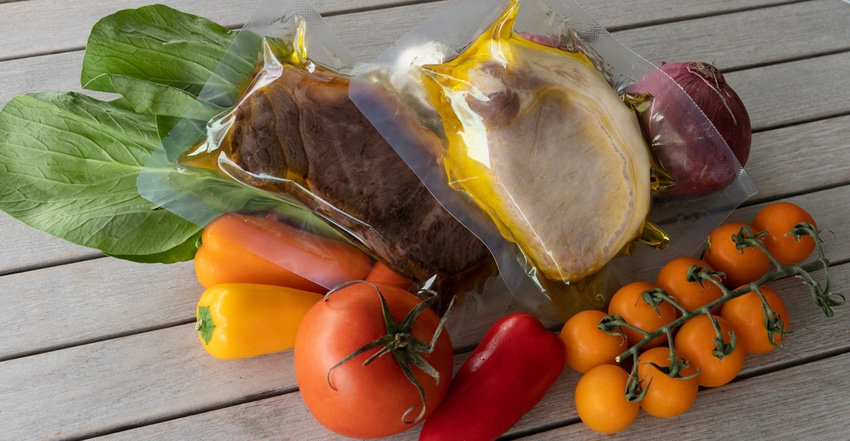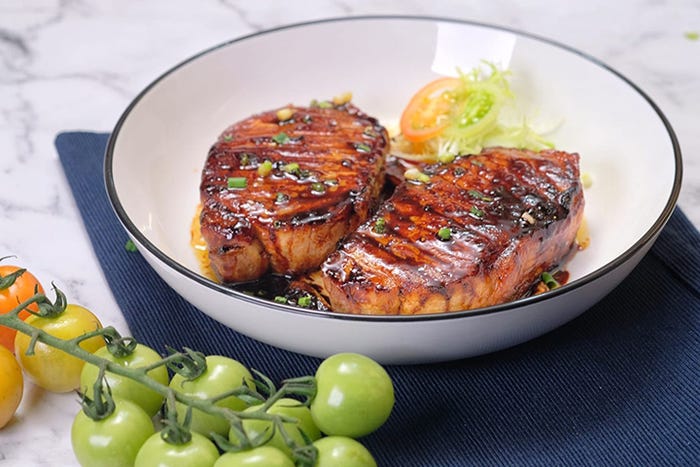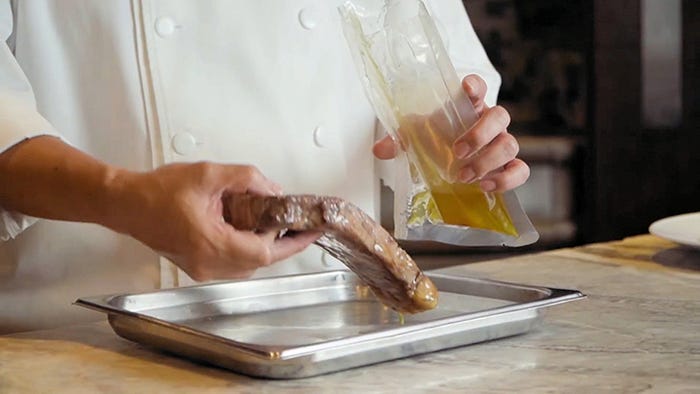Startup that sterilizes pouches of high-quality food at 140°F to reduce energy use and processing costs has some familiar backers.

Food scientists at IXON Food Technology in Hong Kong aim for nothing less than to transform the future of the food industry with a novel energy-efficient food preservation method that can keep meat fresh and juicy for up to two years without refrigeration. The processing techniques eliminate the need for artificial flavors, preservatives, or chemicals.
"Our product has the taste of fresh meat with the shelf life and convenience of canned meat, and uses very little energy, unlike frozen meat,” says Felix Cheung, the startup company’s co-founder and CEO. “Our product addresses 10 out of 17 sustainable development goals set out by the United Nations — we’re using creative science to change our food's future.”
The company’s revolutionary technology is called "ASAP," which stands for Advanced Sous-vide Aseptic Packaging. Developed, tested, and proven to work over the past five years, ASAP allows food to be sterilized at a much gentler 140°F/60°C rather than the high heat traditionally used in canning that can cook out flavor. This novel technology promises to help the food industry reduce costs, save energy, and increase production efficiency.
“Our product is unique,” explains Cheung. “Consumers can enjoy perfectly cooked meals at home or in a restaurant within the snap of a finger. Freezer burns, defrosting, and bad cooking will become a thing of the past.”
The high-quality meats that include 100% natural USDA organic and Canada organic pouched premium beef sirloin and pork chops that reheat quickly, within two minutes on high heat. Additional ASAP prepared meat and food options will be added over time.

The methods were discovered when Ixon co-founders Felix Cheung and Elton Ho studied the microbial risks of sous-vide food for a university project. This inspired them to develop the ASAP technology and launch the company three years ago.
“We have opened a pilot factory in Hong Kong where we make ASAP products manually,” Cheung says. “The process is far from efficient, but it has allowed us to perform food microbial tests and to develop peripheral technologies to enhance the safety and reliability of ASAP products.”
The company has applied for patents and trademarks on its proprietary technology in the United States, Europe, and China.
Packaging Digest also learned the following from Cheung.
Potential products include whole-muscle proteins, including beef, pork, chicken, lamb, fish, scallops, octopus, as well as unshelled eggs. They can be in oil, brine, water, or combined with complex multicomponent food, such as curry and soup.
Ixon is collaborating with several companies to commercialize the technology. These include Ecolab, Cargill, Sealed Air, and Mitsui Chemicals.
Customers are meat processors and food companies. “However, the end users can be just about anyone, from foodservice, military, supermarket, outdoor camping companies to everyday consumers,” Cheung says.
ASAP separates the packaged food into its components, namely packaging, solids, and liquids. Ixon then applies separate sterilization techniques to each before recombining the constituents in a sterile environment.
For packaging films, vaporized hydrogen peroxide is used.
Liquids are heated to 320°F.
For solids, such as meat, 320°F is applied only to the surface for about 60 seconds to kill all bacteria and spores. The interior is inherently sterile, Cheung points out.
“For now, we cannot reveal exactly what we do to raise the 320°F other than to say that it is a thermal, physical, nonradiative method,” he explains.
After combining all components back into one pouch, the sous vide process cooks through the meat at 140°F for 60 to 240 minutes, depending on thickness and type of meat to be processed.
This creates a shelf-stable product.
“We are not breaking current theories of food sterilization, we are simply circumventing them,” says Cheung.

The patent-pending technology can be licensed. The company will help customers develop new products and construct the production line, which includes clean rooms, aseptic packaging equipment, isolators, and decontamination chambers.
The pilot factory in Hong Kong manually packages about 100 pieces of meat daily. It’s not efficient, and it’s not meant to be, according to Cheung. The next goal is to go medium scale, processing around one ton of food per day.
“We are currently looking for locations in the US to build our pilot center,” Cheung adds.
Because the technology uses low temperature, there is almost no limitation to the type of packaging materials that are used. The only requirement is that they provide hermetic seal. “Even single-material plastics can be used, which is good news because they can be recycled,” Cheung points out.
The current biggest challenge is educating people to know and trust our technology. “That’s why we’re working with well-trusted brands in the industry so that we can overcome some of these hurdles,” he says.
The company launched a Kickstarter campaign to spread awareness about its energy-efficient and innovative food preservation technology.
The response has been overwhelming. “We were funded 100% in 2 hours, 200% funded in 12 hours, and are approaching the 300% funded goal,” enthuses Cheung. “We aim to deliver the first batch of premium products three months after the campaign closes and plan to deliver the second batch of products before February 2022 as we move from manual production to an automated production line. This is a once-in-a-century opportunity to participate in food history in the making."
Ed Note: The Kickstarter page above features an excellent video about the company and the technology.
For more information, visit IXON Food Technology
About the Author(s)
You May Also Like




